Cocoa Mass in Dubai, UAE (Cocoa Liquor)
If you’re in the business of making chocolate, desserts, or even working in food manufacturing anywhere in the UAE, there’s a good chance you’ve come across the term cocoa mass — or as it’s sometimes called, cocoa liquor.
Now, the name “liquor” might throw some people off, but there’s actually no alcohol in it. It’s just what we call pure ground cocoa beans that have been roasted, shelled, and turned into a thick, smooth paste. This paste is a foundational ingredient in a lot of chocolate-based products. Whether you’re making dark chocolate bars, baking brownies on an industrial scale, or blending fillings for desserts — cocoa mass is usually the starting point.
In the UAE — especially in places like Dubai, Abu Dhabi, Sharjah, and even the industrial zones of Ajman or Ras Al Khaimah — the demand for cocoa ingredients has grown over the years. We’re seeing more local chocolate brands pop up, bigger bakeries scaling up, and even cosmetic companies exploring cocoa-based products. Naturally, a lot of businesses are now asking the same thing:
Where can I buy good quality cocoa mass in the UAE — and in bulk?
That’s what this blog is here to help with.
We’ll walk through:
- What cocoa mass is really made of
- How it’s used in different industries in the UAE
- What to look for when sourcing it
- The differences in origin and quality
- And how buyers in the UAE typically go about purchasing it in bulk
If you’re someone in the UAE just trying to understand your options or you’re a procurement person for a food brand, this will give you a clearer picture.
What Exactly Is Cocoa Mass Made Of, and How Is It Used in the UAE?
Let’s break it down simply — cocoa mass is basically 100% pure cocoa. Nothing added. It’s made by taking fermented, dried cocoa beans (usually from West Africa or South America), roasting them, removing the shells, and grinding the nibs into a smooth, thick paste. This paste contains both cocoa solids and cocoa butter, which makes it rich, aromatic, and perfect as a base ingredient in a wide range of products.
So, what is it used for?
In the UAE, cocoa mass is used in more places than you might think. Here are a few common ones:
1. Chocolate Manufacturing
This is the most obvious one. Whether it’s a boutique chocolatier in Dubai Mall or a commercial chocolate factory in Dubai Industrial City, cocoa mass is where most recipes begin — especially for dark and milk chocolate. It’s where the actual cocoa flavor comes from.
2. Bakeries and Dessert Brands
From high-end bakeries in Abu Dhabi to homegrown brands across Sharjah and Ajman, cocoa mass is used to make chocolate fillings, glazes, ganache, frostings, and more. Some dessert makers prefer cocoa mass over cocoa powder because it offers a deeper flavor and smoother texture.
3. Ice Cream and Beverage Production
Some UAE-based producers blend cocoa mass into premium chocolate ice creams, hot chocolate mixes, or gourmet milkshakes. It adds that full-bodied chocolate flavor that cocoa powder alone doesn’t quite deliver.
4. Cosmetics and Natural Products
Outside of food, some cosmetic and skincare companies use cocoa mass or raw cocoa derivatives in moisturizers, balms, and soaps because of its high antioxidant and fatty acid content. While not as common, it’s a growing niche in the wellness space.
Why is this relevant in the UAE? Because the country imports all its cocoa. There’s no local cocoa farming here — so manufacturers, chocolatiers, and food brands are heavily reliant on bulk cocoa mass suppliers who can bring in high-quality product from origin countries.
And that’s where sourcing gets important — because not all cocoa mass is the same.
How to Choose the Right Cocoa Mass — Origin, Quality & Certifications
1. Origin of the Cocoa Beans
-
West African cocoa mass (especially from Ghana, Nigeria, and Ivory Coast) is often bolder and more balanced. It’s commonly used in commercial and artisanal chocolate making.
-
Latin American beans (like Ecuador or Peru) tend to have fruitier, more acidic notes — often preferred by high-end chocolatiers.
-
In the UAE, many manufacturers prefer African cocoa mass because of its strong cocoa profile and better availability in large volumes.
2. Alkalized vs. Natural Cocoa Mass
3. Certifications Matter
-
Organic certified cocoa mass
-
Fairtrade or Rainforest Alliance certifications
-
HACCP, ISO, or FDA compliance — especially for food-grade bulk shipments
-
Halal certification (critical in the UAE market)
4. Packaging and Delivery Conditions
Buying Cocoa Mass in the UAE – How Businesses Source It and What to Expect
1. Cocoa Mass Is Mostly Imported — So Know Your Source
2. Volumes and Packaging: What You Should Expect
-
Packaging: Usually comes in 25kg blocks, packed in cartons or lined boxes
-
Container Loads: Businesses importing directly often order in 20-foot or 40-foot containers, depending on their monthly or quarterly demand
-
MOQ (Minimum Order Quantity): If you’re buying from a UAE-based supplier, you can often request smaller loads — even a few tons — which is perfect if you’re not ready to import full containers. Radad International can customize smaller quantities based on your business needs per time
3. Logistics and Storage in the UAE
-
Dubai Industrial City
-
Jebel Ali Free Zone
-
Sharjah Industrial Area
-
KIZAD (Abu Dhabi)
4. Price Ranges and What Affects Cost
-
Global cocoa market prices (which have been quite volatile recently)
-
Origin – African cocoa is generally more affordable and widely available
-
Processing quality – e.g., stone-ground, fermented vs. non-fermented
-
Certifications – organic, fairtrade, or halal options often cost more
-
Shipping & customs fees
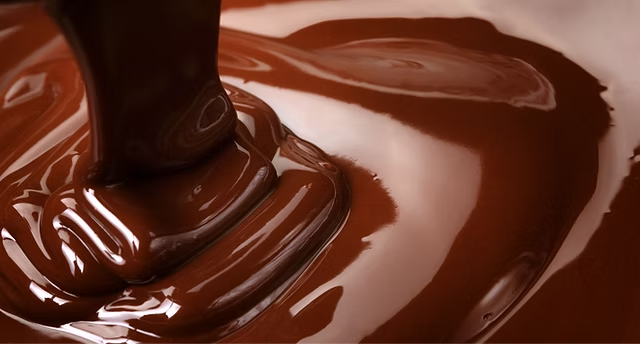
Who’s Buying Cocoa Mass in the UAE – Key Industries and Trends
1. Chocolate Manufacturers (Large & Small)
-
Natural cocoa mass for dark chocolate
-
Alkalized cocoa mass for smoother blends or milk chocolate
-
In bulk blocks, usually 25kg or more
2. Bakeries, Cafés, and Dessert Brands
-
Brownies and cakes
-
Chocolate sauces and glazes
-
Truffles and filled desserts
3. Food & Beverage Manufacturers
-
Chocolate spreads
-
Ice creams
-
Beverages and protein shakes with cocoa base
4. Exporters & Traders
-
Saudi Arabia
-
Oman
-
Kuwait
-
East Africa
-
India
5. Cosmetics and Wellness Companies (Emerging Market)
-
Raw or lightly processed cocoa mass
-
Organic certification (if available)
-
Smaller quantities (1–5 tons)
Why More Buyers Are Sourcing Cocoa Mass Through Radad International
Direct Sourcing from Africa (Without the Middlemen)
-
Full control over the quality of the beans and how they’re processed
-
Faster turnaround times (no third-party bottlenecks)
-
Better pricing — because there’s no long chain of resellers in between
Based in Dubai – With Local Support
-
Get local support for logistics and documentation
-
Arrange sampling and quality checks
-
Communicate in real time, with better response and transparency
Bulk Supply with Flexibility
-
Chocolate manufacturers
-
Food and beverage brands
-
Traders and re-exporters
-
Even cosmetic and wellness producers
Strategic Storage and Delivery
-
Properly packed cocoa mass in food-safe, sealed 25kg cartons or vacuum bags
-
Secure warehousing in Dubai
-
Timely delivery within the UAE and GCC region
How to Start Buying Cocoa Mass in Dubai (Step-by-Step Tips)
Step 1: Know What You Actually Need
-
How much cocoa mass you need (monthly or quarterly)
-
Whether you want natural or alkalized cocoa mass
-
Packaging preferences (most bulk orders come in 25kg blocks)
-
Any certifications you require (like halal, organic, or food safety certifications)
Step 2: Ask About Origin and Processing
Step 3: Request a Sample (If Needed)
Step 4: Check Storage and Shipping Conditions
-
Ships in temperature-controlled containers (especially in summer)
-
Stores in a certified warehouse
-
Handles customs clearance and documentation if you’re importing yourself
Step 5: Choose a Reliable Partner
-
Understands the product
-
Can deliver on time
-
Communicates clearly
-
Has presence in the UAE (makes life easier for support and logistics)
Quick Recap
-
Cocoa mass (cocoa liquor) is a key raw ingredient used across food, chocolate, dessert, and even beauty industries.
-
The UAE imports all of its cocoa — so sourcing from trusted suppliers is critical.
-
Quality, origin, and certifications should guide your decision, not just cost.
-
Radad International supplies premium-grade cocoa mass from Africa, with local support in Dubai — making the whole process smoother for buyers in the UAE.
Want to Learn More or Place a Bulk Order?
Frequently Asked Questions (FAQs) About Cocoa Mass in Dubai, UAE
❓ 1. What exactly is cocoa mass or cocoa liquor?
❓ 2. Where can I buy cocoa mass in bulk in Dubai or the UAE?
❓ 3. Is cocoa mass the same as cocoa butter or cocoa powder?
-
Cocoa butter is extracted fat from the cocoa bean, used for creaminess in chocolate or in cosmetics.
-
Cocoa powder is what’s left after most of the cocoa butter is removed. Cocoa mass is more intense in flavor and richer in texture than either of these.
❓ 4. What industries in the UAE typically use cocoa mass?
-
Chocolate manufacturers
-
Bakeries and dessert brands
-
Beverage companies
-
Ice cream producers
-
Exporters and traders
-
Cosmetic and wellness product makers
❓ 5. Can I buy cocoa mass in smaller quantities or only in containers?
❓ 6. What packaging does cocoa mass come in?
-
25kg blocks or slabs
-
Food-grade cartons
-
Vacuum-sealed or lined bags to preserve freshness
❓ 7. Does cocoa mass need special storage?
❓ 8. What certifications should I look for when buying cocoa mass?
-
Halal certification (important in the UAE)
-
ISO / HACCP compliance for food safety
-
Organic certification
-
Fairtrade or Rainforest Alliance if ethical sourcing matters to your brand
❓ 9. What’s the difference between natural and alkalized cocoa mass?
-
Natural cocoa mass has a stronger, slightly acidic cocoa flavor.
-
Alkalized cocoa mass (also called “Dutched”) is treated to reduce acidity, giving it a smoother taste and darker color.
❓ 10. Is cocoa mass suitable for cosmetics or skincare use?
❓ 11. How is cocoa mass priced in the UAE market?
-
Global cocoa market fluctuations
-
Origin of the cocoa (West Africa is generally more cost-effective)
-
Certifications and processing quality
-
Volume and packaging
-
Shipping and customs charges
❓ 12. How do I start placing an order for cocoa mass in the UAE?
-
Reaching out to a trusted supplier (like Radad) with your quantity, packaging, and certification needs
-
Requesting a product sample
-
Confirming logistics support (especially for storage and delivery within the UAE)
-
Finalizing a supply agreement and delivery schedule

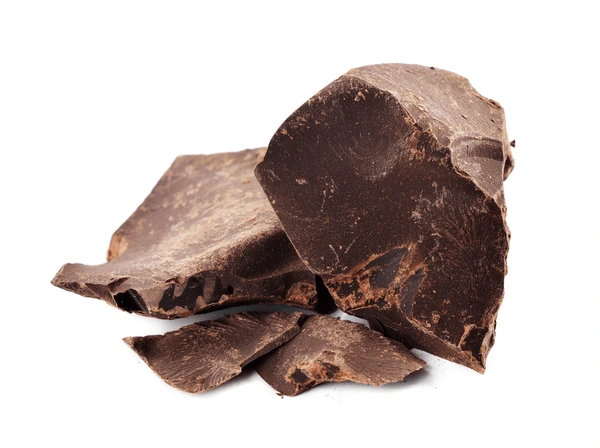
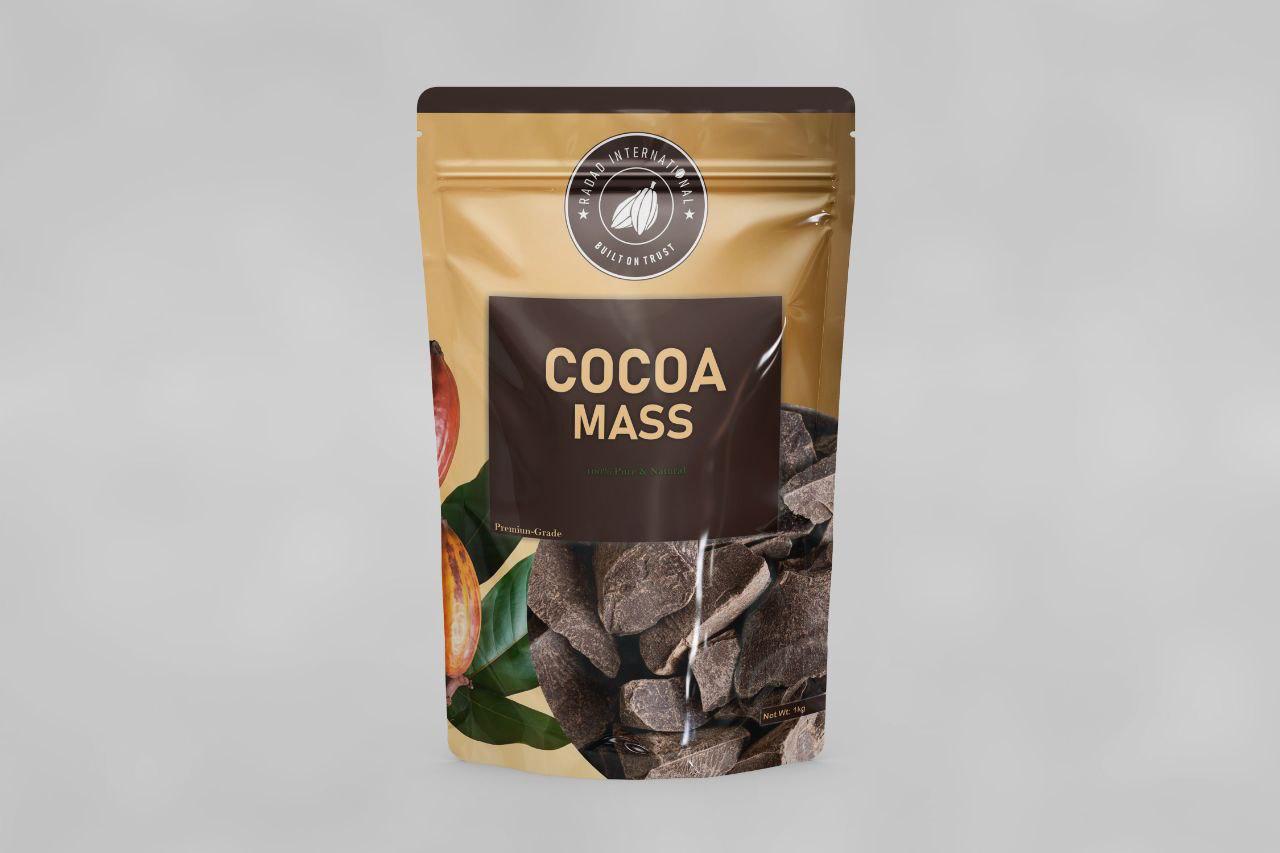
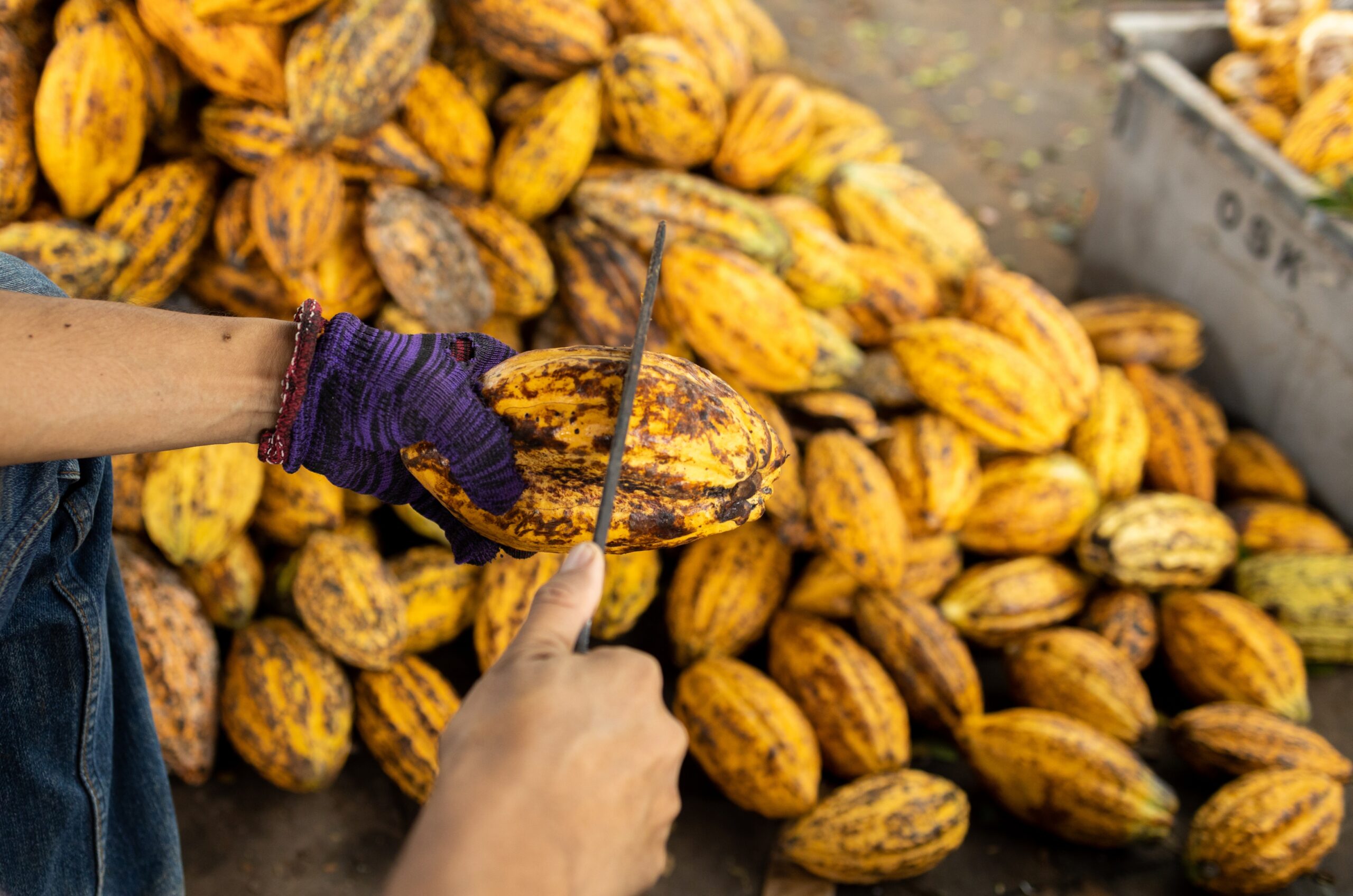
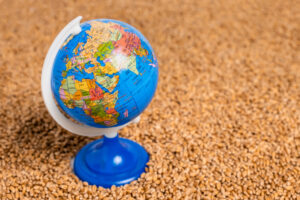
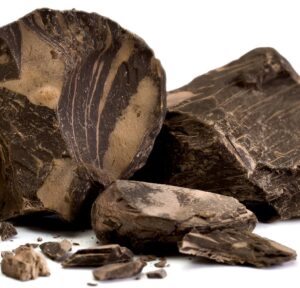
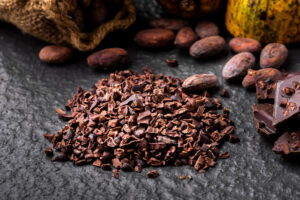
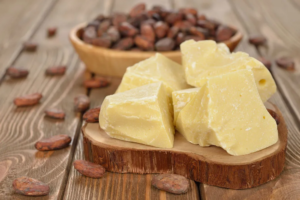
2 Responses
Exceptional work. This is very well-researched.
Rattling excellent visual appeal on this site, I’d value it 10 10.